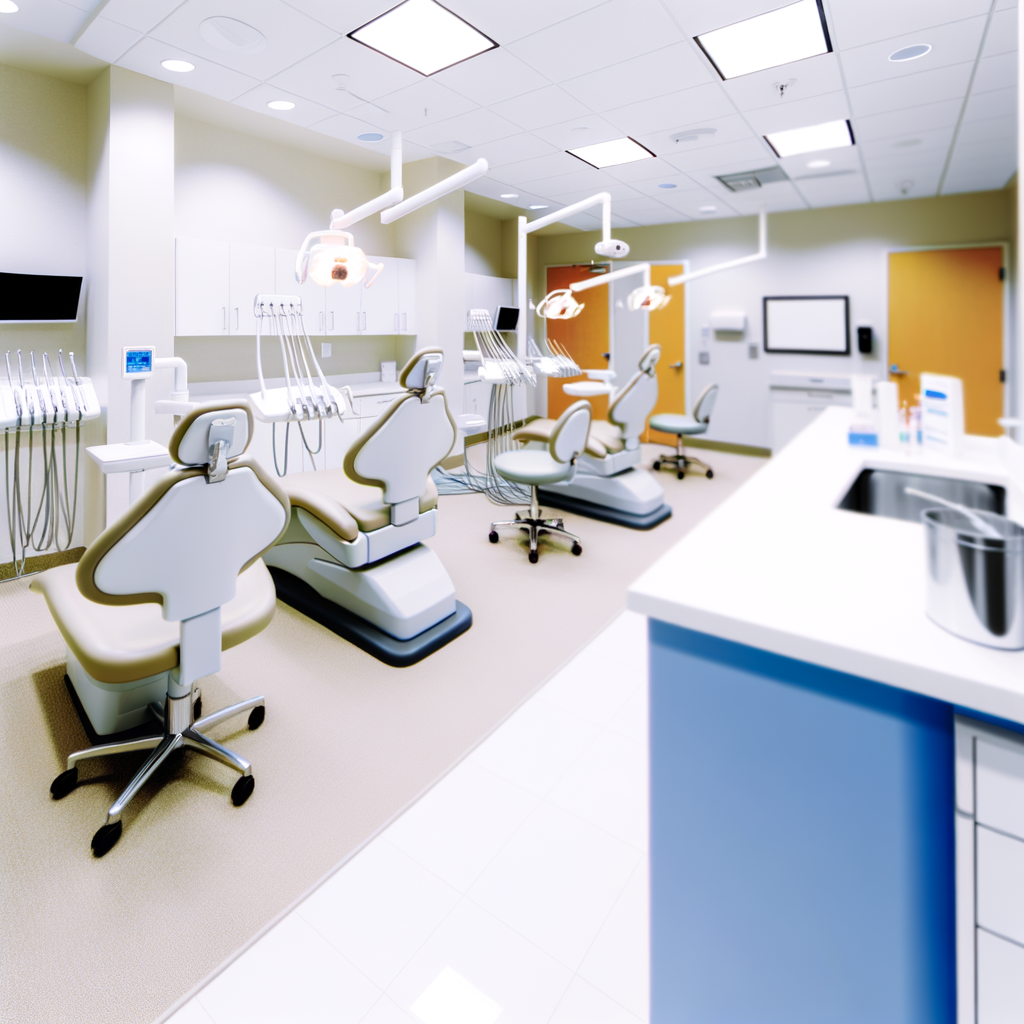Do and don’ts after wisdom teeth removal?

Wisdom teeth removal is a common dental procedure that many people undergo during their late teens or early adulthood. While the surgery can alleviate future dental issues, the recovery phase is crucial for ensuring a smooth healing process. In this post, we will explore the do and don’ts after wisdom teeth removal, providing you with essential tips to help you navigate the recovery period effectively.
Do: Follow Your Dentist’s Instructions
After your wisdom teeth removal, it is imperative to follow the specific instructions given by your dentist. Each case can vary based on the complexity of the extraction, so adhering to your dentist’s guidelines is crucial for a successful recovery. Some general instructions may include:
- Taking prescribed medications as directed.
- Maintaining proper oral hygiene, avoiding contact with the extraction sites.
- Using ice packs to minimize swelling during the first 24 hours.
For residents in Rock Hill, SC, your local dentists, like those at Piedmont Dental, are well-versed in the recovery process and can provide tailored advice to suit your needs.
Don’t: Ignore Post-Operative Symptoms
After surgery, it’s essential to monitor your symptoms closely. Some swelling and discomfort are normal, but there are specific signs that warrant immediate attention:
- Severe pain that does not improve with medication.
- Excessive bleeding that does not stop after a few hours.
- Signs of infection, such as fever or pus discharge.
For instance, if you experience a high fever or notice an unusual discharge, it’s crucial to contact your dentist or oral surgeon promptly. Being proactive can help prevent complications and ensure a smoother recovery.
Do: Keep Your Head Elevated
Keeping your head elevated can significantly aid in reducing swelling and discomfort. Use pillows to prop yourself up while resting or sleeping. This position helps facilitate proper blood circulation and can lead to a more comfortable recovery. If you’re not able to sleep well in an elevated position, consider using a recliner, which can also provide support and comfort during your recovery.
Don’t: Participate in Strenuous Activities
For the first few days post-surgery, it’s crucial to avoid strenuous activities and heavy lifting. Physical exertion can increase your heart rate and blood pressure, potentially leading to increased bleeding or complications at the extraction site. Aim to rest and engage in light activities until your dentist gives you the all-clear.

In Rock Hill, there are many parks and recreational areas where you can enjoy a leisurely stroll or some fresh air without overexerting yourself. Just remember to take it easy!
Do: Stick to a Soft Food Diet
After your wisdom teeth removal, your mouth will be sensitive, and chewing can be painful. Stick to a soft food diet to minimize discomfort. Foods that are easy to eat include:
- Applesauce
- Yogurt
- Mashed potatoes
- Smoothies
- Soups (cooled down)
Be sure to avoid hard, crunchy, or spicy foods, as these can irritate the extraction sites and prolong your recovery. Soups from local restaurants in Rock Hill can be a good option, but remember to let them cool down before consuming.
Don’t: Use Straws
One significant post-operative guideline is to avoid using straws for at least a week after the procedure. The suction created when using a straw can dislodge the blood clot forming at the extraction site, leading to a painful condition known as dry socket. This complication can extend your recovery time and requires additional treatment.

Do: Stay Hydrated
Staying hydrated is vital for healing. Drink plenty of fluids, but avoid carbonated beverages and alcohol, as they can irritate your mouth. Water is your best option. Aim to drink at least 8-10 glasses of water a day to support recovery. If you find plain water boring, try adding a slice of lemon or cucumber for flavor, as long as it’s not too acidic for your sensitive mouth.
Don’t: Smoke or Use Tobacco Products
If you smoke or use tobacco products, it’s best to avoid them for at least 72 hours post-surgery. Smoking can hinder the healing process and increase the risk of developing dry socket and infections. If you can, consider this an opportunity to quit smoking altogether. Many local resources in Rock Hill, SC, can assist with quitting smoking, including support groups and counseling services.
Do: Manage Pain and Swelling Effectively
Post-surgery pain and swelling are common. Over-the-counter pain relievers such as ibuprofen or acetaminophen can help manage discomfort. If your dentist has prescribed medication, be sure to follow the dosage instructions carefully. Additionally, applying ice packs to the outer cheek near the extraction site can help reduce swelling. Do this for about 15-20 minutes at a time, taking breaks to avoid frostbite on your skin.
Don’t: Ignore Your Follow-Up Appointment
Your dentist will schedule a follow-up appointment to ensure that your healing is progressing as expected. It’s crucial to attend this appointment, as it allows the dentist to monitor your recovery and address any potential complications. Ignoring this step could lead to long-term issues that could have been easily managed early on. In Rock Hill, many dental offices, including Piedmont Dental, emphasize the importance of these check-ups for maintaining oral health.
Do: Practice Good Oral Hygiene
Maintaining oral hygiene is essential, even after wisdom teeth removal. However, you must be gentle around the extraction sites. You can:
- Brush your teeth carefully, avoiding the extraction area for the first few days.
- Rinse your mouth with warm salt water starting 24 hours after surgery to keep the area clean.
- Continue regular brushing and flossing for the rest of your teeth.
Consider using a soft-bristled toothbrush during your recovery to minimize irritation. Good oral hygiene will help prevent infections and promote faster healing.
Don’t: Eat Hard or Crunchy Foods
As mentioned earlier, sticking to a soft food diet is crucial during recovery. Foods that are hard, crunchy, or require significant chewing can irritate the extraction sites and lead to discomfort. Avoiding these foods will help you heal faster and more comfortably. Consider trying local restaurants that offer smoothies or soft-serve ice cream, which can be both soothing and enjoyable during your recovery.
Do: Be Patient with Your Recovery
Recovery times can vary significantly from person to person. While some may feel back to normal within a few days, others may take a week or longer. Be patient with yourself, and allow your body the time it needs to heal properly. Engaging in light activities, like reading or watching movies, can help pass the time while you recover.
Don’t: Rush Back to Normal Activities
Although it may be tempting to return to your regular routine, it’s essential to listen to your body. Gradually ease back into your normal activities, and avoid anything too strenuous for at least a week following your surgery. This will help ensure a smoother recovery. If you have any questions about when you can return to specific activities, don’t hesitate to reach out to your dentist.
Conclusion
Recovering from wisdom teeth removal does not have to be a daunting process. By following these do’s and don’ts, you can significantly enhance your recovery experience. Remember, if you have any concerns or questions during your recovery, don’t hesitate to reach out to your dentist at Piedmont Dental. Your health and comfort are the top priority.
Frequently Asked Questions
How long does recovery take after wisdom teeth removal?
Recovery time varies from person to person but typically ranges from a few days to a week. Most individuals feel better within 3-5 days, while others may take a bit longer.
Can I go back to work or school after my wisdom teeth are removed?
Many people can return to work or school within a few days, but it depends on how you feel. Listen to your body and consult your dentist for advice tailored to your situation.
What are the signs of dry socket?
Signs of dry socket include severe pain that develops a few days after the extraction, an unpleasant taste in the mouth, and visible bone in the extraction site. If you suspect you have dry socket, consult your dentist immediately.
